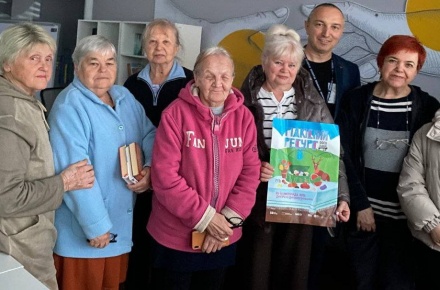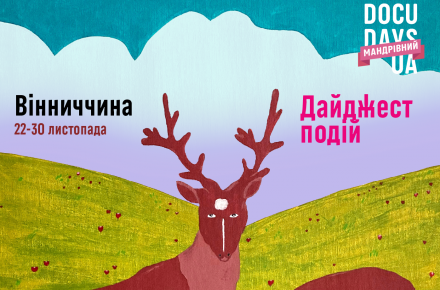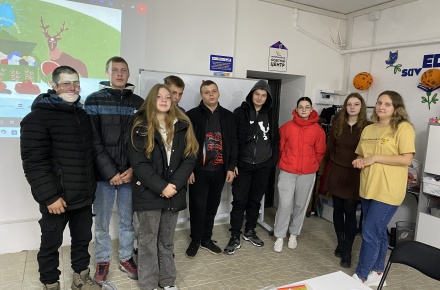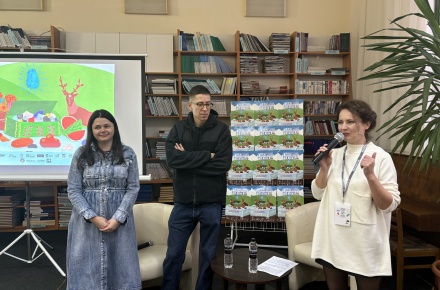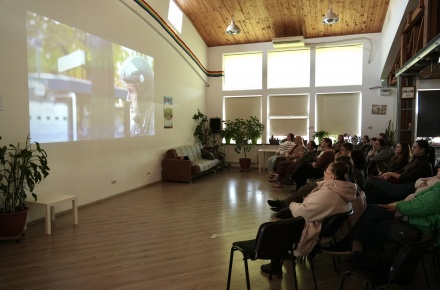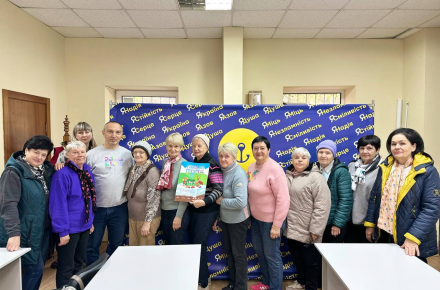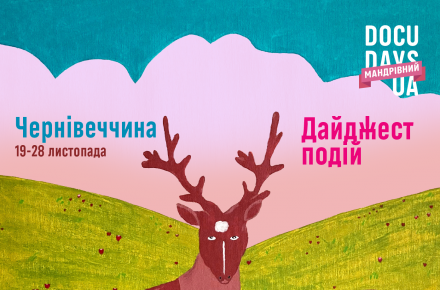The film My Sextortion Diary and a conversation about cybersecurity in Boryspil
The film My Sextortion Diary and a conversation about cybersecurity in Boryspil
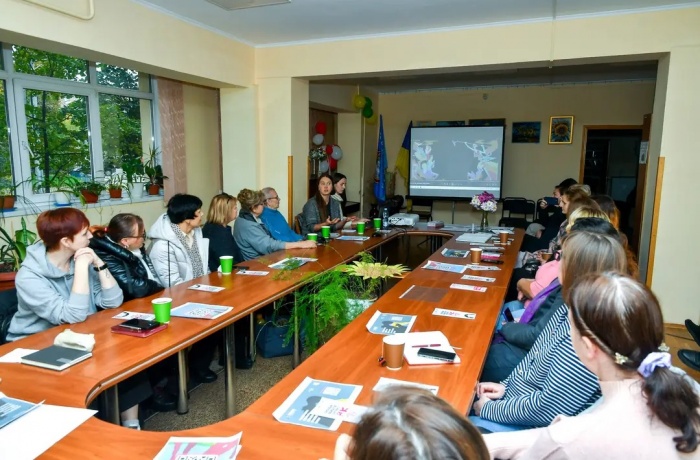
During the 22nd Travelling Docudays UA Human Rights Documentary Film Festival in Boryspil, there was a screening of the film My Sextortion Diary by Patricia Franquesa. The event was part of the nationwide information campaign Sexual Violence on the Internet: How to Protect Children, initiated by Docudays UA.
The film, which combines documentary candidness with cinematic self-reflection, allowed the audience to immerse themselves in the world of a victim of online blackmail, with the feelings of fear, shame, powerlessness, and then gradual liberation.
A personal story as an act of bravery
In the film, Patricia Franquesa reveals her own story: her carefree life is invaded by a stranger who threatens to reveal intimate photos from her personal archive. From panic to struggle: the protagonist conducts her own investigation, works with the police, studies the statistics of similar crimes, and eventually turns her experience into an act of therapy and self-defense.
My Sextortion Diary is filmed in the screen-life genre, where the action takes place on device screens: in chatrooms, text messages, emails. This is a new format for documentary filmmaking which allows the viewer to literally find themselves “within” digital reality.
Cinema as an entry point to the conversation about security
Guests invited to the screening included child psychologists from the Boryspil Community, professionals working at schools and extracurricular education institutions. The screening was followed by an open discussion on cybersecurity and psychological support for victims of online violence.
The conversation featured:
-
Viktoriia Bohun, clinical psychologist at the Boryspil Hospital and the Harmony mental health office;
-
Valeriia Buneieva, education security officer;
-
Nataliia Kaliuzhna, head of the sector for counteracting domestic violence at the Boryspil District Police Department
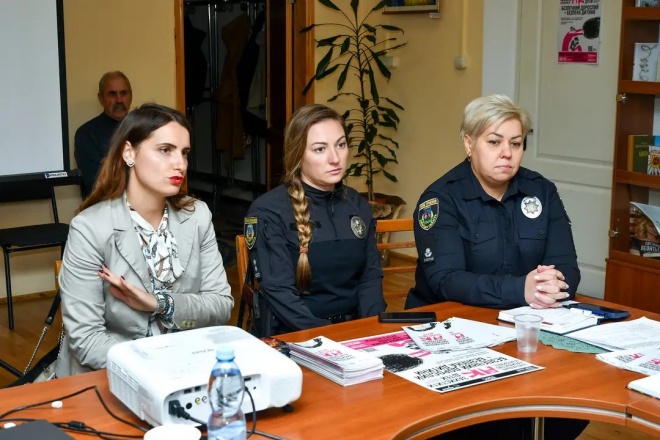
On bravery and the right to protection
Psychologist Viktoriia Bohun emphasized that the film protagonist’s key feature was bravery.
“She didn’t isolate herself in her fear, instead she turned her trauma into creativity. This is an example of how one can reclaim control over their own life,” she said.
The specialist also reminded the audience that when a child turns to a psychologist with a problem of this kind, the professional has the right to report the case to the police even without parental consent in order to protect the child and record the crime.
Representatives of the police, in turn, emphasised the importance of cooperation between parents, teachers, and the law enforcement, and explained how to properly collect evidence of online blackmail by saving screenshots, photos, and messages.
“Everything that is said or written online can become evidence. And everyone must remember about responsibility for their actions,” noted officer Valeriia Buneieva.
Continued discussion
The official part was followed by a conversation in which psychologists shared cases from their own practice, situations where children became victims of cyberbullying or blackmail.
The participants called on the police to more actively cover cases when the perpetrators are punished, in order to show teenagers the actual consequences of such actions.
As the summed up the meeting, the participants agreed on the conclusion that the most important thing is to teach children to be confident, have critical thinking and an understanding of the limits of personal security, so that they can avoid becoming vulnerable to manipulation and blackmail.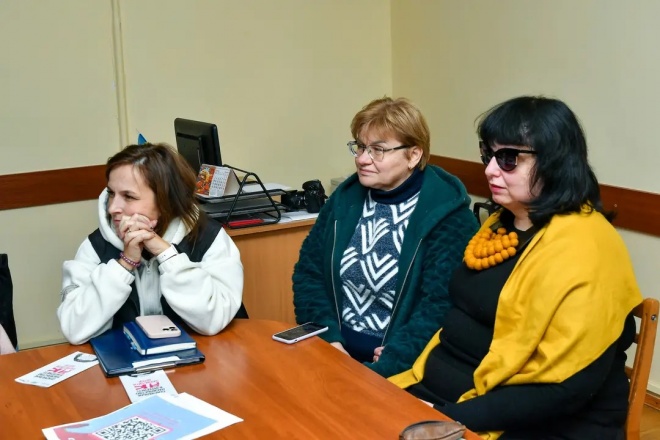
“When a teenager knows that they are entitled to say ‘no,’ this is where their security begins,” noted one of the discussion participants.
Author: Olena Shkrebtienko
The 22nd Travelling Docudays UA is held with the financial support of the European Union, the Embassy of Sweden in Ukraine, and International Media Support. The opinions, conclusions or recommendations do not necessarily correspond to the views of the European Union, the governments or charities of these countries. Responsibility for the content of the publication lies solely on its authors.








